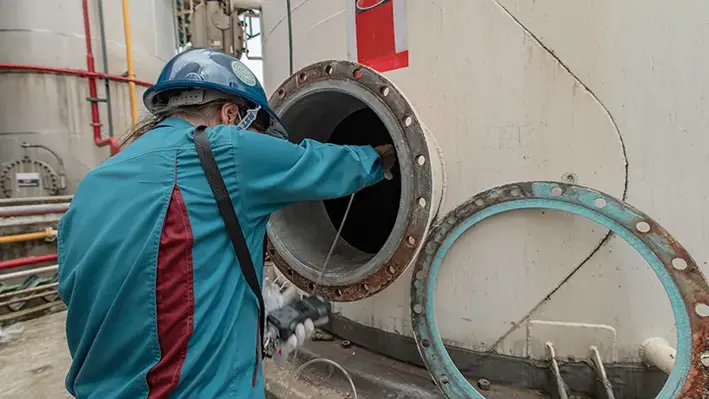
 Viaro Group has appointed well management company, Exceed Energy, as the well operator for the 192 wells from One Gas West assets.
Viaro Group has appointed well management company, Exceed Energy, as the well operator for the 192 wells from One Gas West assets.
This follows Viaro’s acquisition of the North Sea assets from Shell and ExxonMobil.
The contract will enable Exceed to manage all aspects of late life well operations, starting with the decommissioning of the 26 wells associated with the SNS Leman Foxtrot and Golf platforms, which commences later this year.
This will be followed by well intervention and further decommissioning operations, as well as the development of new gas production wells as per the five-year, multi-million contract.
Marking the win as the most significant in its 20-year history, John Anderson, Exceed's Commercial Director – Wells, said, "Our well and reservoir management capabilities have gained an outstanding reputation for the ability to balance decarbonisation with energy security and affordability, as we continue to champion a sustainable UK energy transition.
"Understandably, this contract has been keenly contested across the North Sea industry, and we are delighted that our capacity and competency have been recognised by Viaro as providing optimum levels of expertise and support for its major acquisition."
Click here to register for Offshore Network's international well intervention and decommissioning conferences.
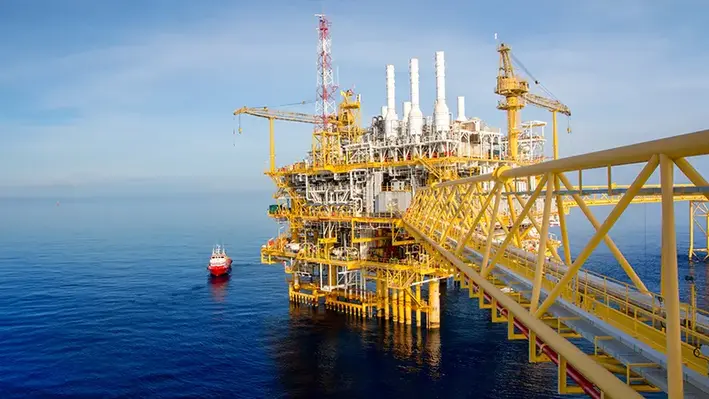

The European well intervention market, valued at US$4.73bn in 2024, is forecasted to grow to US$ 7.17bn by 2030, at a CAGR of 7.02%. Well intervention encompasses a range of operations aimed at maintaining, repairing, or boosting oil and gas wells to ensure optimal production and efficiency.
Demand in Europe is rising due to energy security concerns amid geopolitical tensions and supply disruptions. To reduce reliance on imports, European countries are investing heavily in well intervention services to maximise output from existing assets. Techniques such as enhanced oil recovery (EOR) and gas lift optimisation play vital roles in sustaining production levels and managing decline rates. Operators are also balancing fossil fuel production with sustainability objectives, using well intervention to lower environmental impact.
Despite its growth, the market faces challenges including high operational costs, especially offshore in regions like the North Sea, where harsh conditions and complex logistics increase expenses. Price volatility in the oil and gas sector, along with rising material costs and supply chain issues, add further pressure.
To address these hurdles, the industry is adopting cost-effective methods like rigless interventions, leveraging advancements in coiled tubing and electric wireline technologies. Maintaining stringent safety standards remains a priority.
Digital transformation is reshaping the sector through AI, machine learning, and real-time data analytics, which help optimise operations, cut costs, and improve safety. Technologies such as fiber-optic sensors and downhole cameras support remote monitoring and predictive maintenance, reducing downtime and preventing failures.
Robotic intervention systems and remotely operated vehicles (ROVs) are increasingly used to improve safety and efficiency in hazardous offshore environments. Autonomous coiled tubing units and electric wireline tools enable precise, minimally disruptive interventions.
The market covers service types, well types, and applications across countries like Norway, the UK, Turkey, Italy, Denmark, and Germany. Comprehensive competitive analyses highlight major players and emerging opportunities tailored to corporate strategies.
This analysis is based on the report “Europe Well Intervention Market, By Country, Competition, Forecast and Opportunities, 2020-2030F” conducted by Research and Markets. For more information, visit here
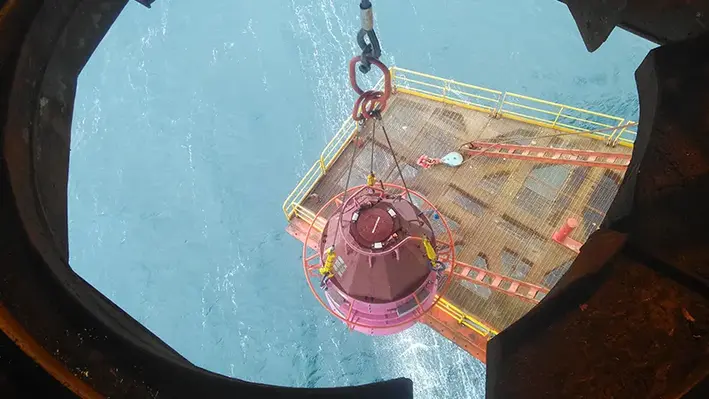
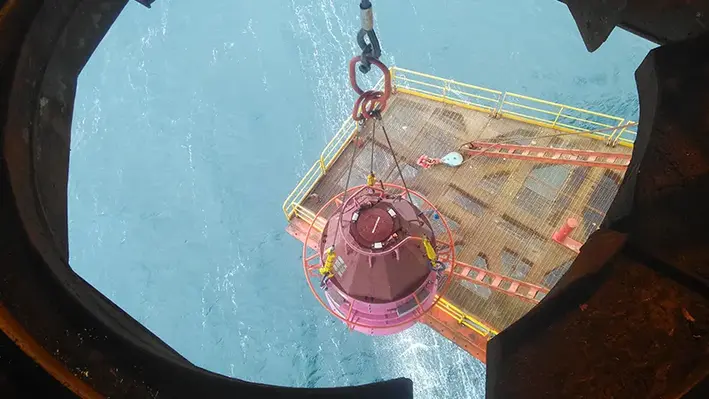 Sentinel Subsea, a specialist in subsea well integrity monitoring, has successfully delivered a six-figure project involving the deployment of two WellSentinel Coral systems for a major operator in the North Sea.
Sentinel Subsea, a specialist in subsea well integrity monitoring, has successfully delivered a six-figure project involving the deployment of two WellSentinel Coral systems for a major operator in the North Sea.
Supporting a large-scale drilling campaign, the project represents a key step in enhancing offshore safety and operational effectiveness.
The Coral systems provided continuous integrity monitoring throughout the well suspension period, helping to ensure safe operations during this critical phase. The deployment took place entirely in February 2025.
Notably, this is the first time the WellSentinel technology has been deployed at the start of a well’s lifecycle, underscoring the value of passive monitoring early in offshore developments. The operator’s adoption of this strategy aligns with the ALARP (As Low As Reasonably Practicable) principle, reducing risk exposure during planning delays before christmas tree installation.
“We are thrilled to have successfully completed this project, which highlights Sentinel Subsea’s commitment to safety, innovation, and growth. This is a key moment for us, as it is the first time our WellSentinel technology has been deployed at the beginning of a well’s lifecycle. Partnering with a major operator in the North Sea strengthens our presence in the region and contributes to our continued global expansion,” said Neil Gordon, CEO of Sentinel Subsea.
The Coral systems were installed onto 18 ¾” wellheads from a jack-up rig via the texas deck using crane wire. As the units were preconfigured for detection before installation, no in-well intervention was required, streamlining operations.
Headquartered in Aberdeen since its founding in 2018, Sentinel Subsea continues to deliver passive monitoring solutions globally for both major and independent operators. This project further establishes its leadership in subsea well integrity monitoring.
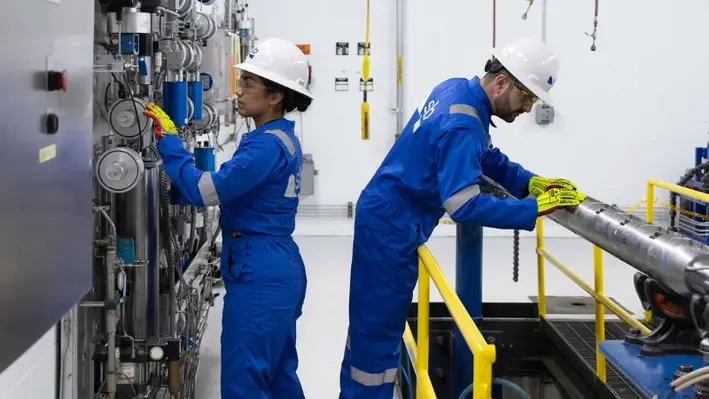

Global energy technology company SLB has unveiled Electris, a portfolio of digitally enabled electric well completions technologies designed to enhance production, improve recovery, and lower the total cost of ownership of oil and gas assets.
Electris completions enable digital control over the full productive zone of the wellbore, delivering real-time production intelligence across the reservoir.
This capability allows operators to predict, adapt, and respond confidently to changing production conditions, by optimising reservoir performance throughout the well’s lifecycle and unlocking reserves typically left behind by conventional systems.
“Electris completions take reservoir management to the next level — making it possible for operators to get more out of their assets with fewer requirements for costly well interventions,” said Paul Sims, president, Production Systems. “With much of the ‘easy’ oil already produced, operators are encountering more and more complex reservoirs. Electris completions can help shift the production economics in these reservoirs — resulting in higher recovery factors that maximise return on investment from the asset.”
To date, more than 100 Electris completions technologies have been installed across five countries. In one case offshore Norway, Electris was deployed in an extended-reach well to increase oil production.
The operator is using data from the system to identify which zones are actively contributing to output, allowing them to optimise oil flow and reduce water production.
By managing water output, the system has also cut the energy required to lift and reinject treated water into the reservoir.
SLB launched the new technology last week in Houston, with plans to roll it out for global operations.
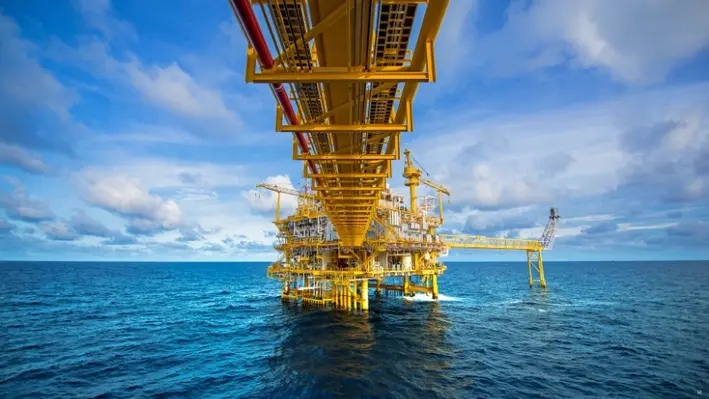

The Norwegian Ministry of Energy has unveiled its 2025 licensing round on the Norwegian Continental Shelf, dubbed APA 2025, marking the largest area ever offered in a single licensing round.
Announced last week, the move aims to bolster exploration and production in one of Europe’s key petroleum regions, with applications due by 2 September, 2025, and new production licenses set to be awarded in January 2026.
The annual Awards in Predefined Areas (APA) rounds grant oil companies access to mature and well-explored petroleum zones on the continental shelf.
This year’s offering covers approximately 75% of the shelf’s total area opened for petroleum activities, including a significant expansion of 76 blocks: eight in the Norwegian Sea and 68 in the Barents Sea.
“We need to explore more, discover more, and produce more. That’s why it is important to ensure companies have stable access to exploration acreage. Never before has a larger area been announced in a licensing round. This is good for Norway and for Europe,” said Minister of Energy Terje Aasland.
The APA 2025 round follows a public consultation process and builds on technical petroleum assessments, prioritising continued exploration to counter an anticipated production decline after 2030.
Aasland emphasised the strategic importance of the Barents Sea, where the bulk of the new blocks are located, noting that the expansion “provides companies with access to significant new acreage in the Barents Sea, helping us further clarify the resource potential in the north.”
After over five decades of exploration, the APA framework now encompasses most of the shelf’s accessible acreage, making these rounds a linchpin of Norway’s petroleum policy.
“The APA rounds are a cornerstone of the government’s petroleum policy. Continued exploration and new discoveries are essential to limit the decline in production on the continental shelf after 2030,” Aasland stated.
The minister also called on the industry to seize the opportunity, urging companies to “take responsibility by identifying and applying for opportunities with significant resource potential — in addition to continuing near-infrastructure exploration.”
This push comes as Norway seeks to map its resource base before ageing infrastructure is decommissioned.
Companies have until 12:00 CEST on September 2, 2025, to submit applications.
Detailed information, including updated block maps, health, safety, environmental, and fisheries considerations, is available on the Norwegian Offshore Directorate’s website.
The APA 2025 announcement underscores Norway’s commitment to sustaining its role as a major energy supplier while navigating the challenges of a maturing continental shelf. As Aasland put it, the stakes are high “for Norway and for Europe.”
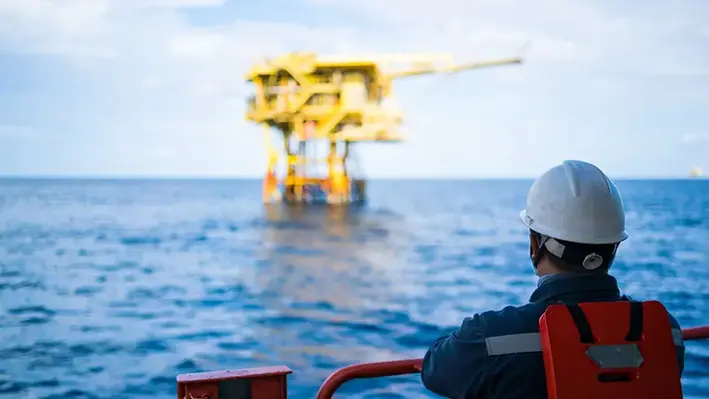

Archer, a prominent provider of drilling and well services, has secured a five-year contract with Repsol Resources UK for a range of services, including platform drilling, facilities engineering, coil tubing, wireline services, and downhole well service technologies
The deal also includes an option for a two-year extension.
This collaboration will focus on late-life operations and plug and abandonment (P&A) work across Repsol’s vast portfolio of North Sea platforms, including Piper, Claymore, Tartan, Saltire, Auk, Arbroath, Montrose, Beatrice, and Clyde. A significant aspect of the contract is the P&A scope, which involves around 130 wells.
Dag Skindlo, Archer's CEO, expressed his enthusiasm about the achievement: “We are pleased to strengthen our partnership with Repsol through this major long-term agreement within our strategic focus on P&A services. We have robust technical and attractive commercial offerings within late life and P&A, and our team is committed to delivering operational excellence, innovation, and sustainability in the decommissioning of these assets.”
This contract further establishes Archer as a reliable provider of integrated drilling and well services, with a strong focus on safe, cost-effective operations in the North Sea.
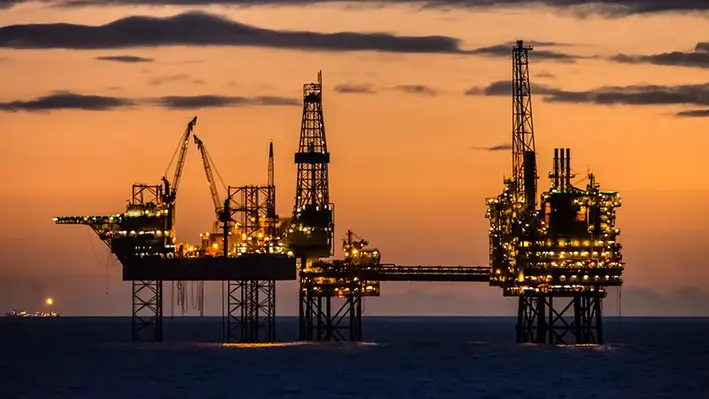
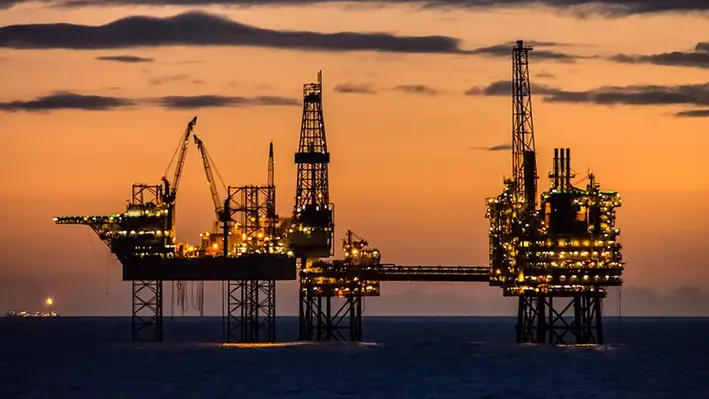 Helix Energy Solutions Group reported reduced well intervention revenues during Q1 2025 citing lower utilisation rates in the North Sea — but warned of more pressing industry-wide problems up ahead.
Helix Energy Solutions Group reported reduced well intervention revenues during Q1 2025 citing lower utilisation rates in the North Sea — but warned of more pressing industry-wide problems up ahead.
Owen Kratz, Helix President and CEO, identified a series of potential forward challenges, including an increasingly testing North Sea market environment with some operators looking to put the brakes on work as a result of recent commodity price falls.
In its latest set of results, the company said Q1 well intervention revenues decreased by US$27.8mn, or 12% compared to the prior quarter “primarily due to seasonally lower utilisation in the North Sea,” as well as mobilisation and docking issues relating to its Q7000 vessel in Brazil.
The Houston-based group’s well intervention vessels include the Q4000, the Q5000, the Q7000, the Seawell, the Well Enhancer, and two chartered monohull vessels, the Siem Helix 1 and the Siem Helix 2.
Its well intervention portfolio includes intervention riser systems, subsea intervention lubricators and the Riserless Open-water Abandonment Module.
“As expected, our first quarter was impacted by the seasonal slowdown in the North Sea and the Gulf of America shelf,” said Kratz.
However, he also warned of a series of major challenges facing the industry in the coming year.
“Our first quarter has been overshadowed by the announcement of production increases by OPEC+, the announcement of US tariffs and its impact on the global market, and the continuing challenges of the North Sea oil and gas market,” he said.
“The confluence of these events has caused a precipitous drop in commodity prices and created uncertainty for our customers and the global economy. As a result, we are seeing some operators pausing work, notably in the North Sea where the current regulatory environment was already challenging for offshore oil and gas production.”
In response to the new market environment, Helix is adjusting its own operations to align with decreased activity, including the decision to stack the Seawell due to the weak North Sea well intervention climate, “but with our strong balance sheet and backlog of contracted work, we nevertheless expect to generate meaningful free cash flow in 2025,” said Kratz.
Helix also noted that its quarterly revenue decreases were offset partially by higher rates during Q1 2025.
Utilisation on the offshore service company’s North Sea vessels declined to 17% during the quarter, from 38% during the prior quarter.
As well as well intervention services, Helix also operates in other market segments including robotics, shallow water abandonment and production facilities.
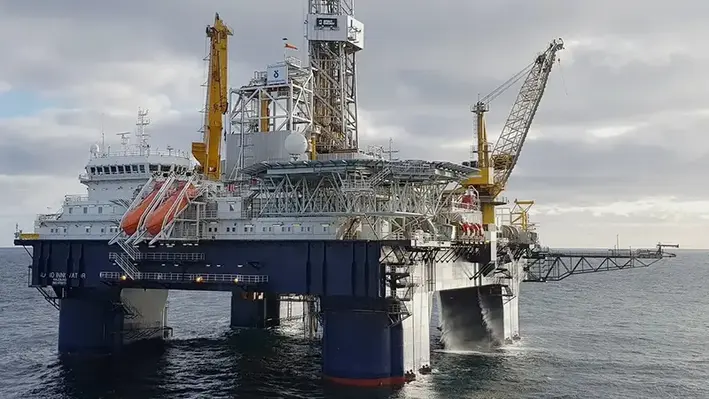
 Island Drilling Company's Island Innovator semi-submersible rig is set for action in the Norwegian continental shelf (NCS) to deliver a well pugging operation for Equinor.
Island Drilling Company's Island Innovator semi-submersible rig is set for action in the Norwegian continental shelf (NCS) to deliver a well pugging operation for Equinor.
Scheduled for start-up early 2026, the rig will be held by Equinor under a three-year contract worth nearly US$330mn with five one-year scopes available. The contract outlines mobilisation, planned upgrading and certain integrated drilling services.
“We will drill 600 improved oil recovery wells and about 250 exploration wells to maintain our production on the NCS towards 2035. At the same time, many wells will be permanently securely plugged. This rig provides us with a tool specially designed for plugging operations. The initial plan is a three-year work programme, but we do not rule out utilising the rig for operations also in the longer term,” said Erik G. Kirkemo, Equinor’s senior vice president for drilling & well.
According to the plan Island Innovator will permanently plug 15 to 20 wells annually for a total of nine licences. These wells will no longer be used for oil or gas production. The rig will plug subsea wells at Heidrun, Snorre and Norne, among others.
Island contract besides, Equinor has awarded framework agreements to the oil service companies Archer Oiltools and Baker Hughes Norge for full-range delivery of plugging services with a duration of three years, with two two-year options.
Archer Oiltools has also been assigned responsibility for planning plugging operations for 26 wells to be plugged from Island Innovator, in addition to options to perform the work.
“Through these contracts the suppliers are involved at an early stage and get a greater responsibility for planning the plugging operations, closely monitored by Equinor, who has the overall responsibility. We facilitate the industrialisation of safe and efficient plugging operations, ensuring continuous improvements together. This is about ensuring quality and reducing costs for work that will gradually increase on the NCS in the future,” said Mette H. Ottøy, Equinor’s chief procurement officer.
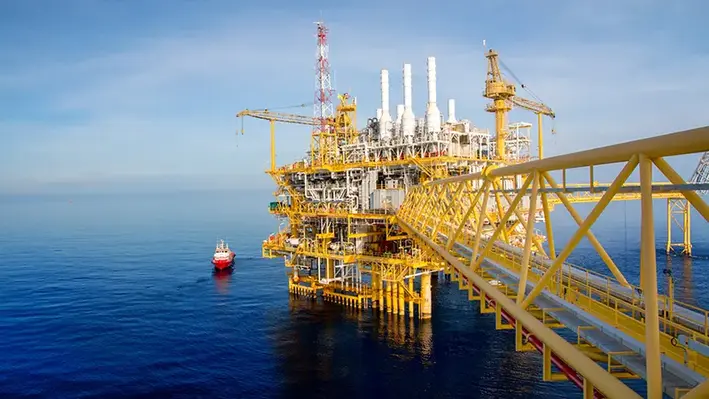
 Aker BP has renewed its alliance with SLB and Stimwell Services to boost oil output, extending the well intervention and stimulation alliance by five years.
Aker BP has renewed its alliance with SLB and Stimwell Services to boost oil output, extending the well intervention and stimulation alliance by five years.
In 2019, Aker BP, SLB, and Stimwell Services entered into a five-plus-five-year tripartite agreement to form the well intervention and stimulation alliance, aiming to accelerate and enhance oil production. On April 2, 2025, the three companies renewed this alliance, signing a new agreement at Aker BP’s headquarters in Fornebu, with all CEOs present at the ceremony.
The alliance has helped Aker BP meet production goals across its operated assets through close collaboration, digital innovation, and the use of advanced technologies. It has unlocked several industry milestones, including simultaneous operations using jack-up rigs, a reduction in locked-in barrels, and what Aker BP calls the world’s first autonomous intervention operation.
Karl Johnny Hersvik, CEO of Aker BP, commented, “Strategic partnerships are essential to shaping the future of our industry. At Aker BP, we remain committed to the alliance model, which creates value through long-term collaboration. It enables us to increase productivity, maintain world-class performance, and deliver oil and gas with low cost and low emissions. This is how we position ourselves as the E&P company of the future.”
According to Aker BP, digital workflows now handle planning and execution, resulting in improved productivity, reduced risks, and higher success rates. The alliance will maintain its focus on transforming offshore well intervention and stimulation over the next five years, with plans to deepen the integration between subsurface and operational teams, expand remote operations through Aker BP’s Integrated Operations Centre, and fast-track the adoption of new technologies.
Sami Haidar, Managing Director at StimWell Services, emphasised, “Stimulation has been critical in unlocking and increasing the recovery from tight reservoirs such as Valhall. During the last five years, the alliance working together managed to successfully develop very tight areas of the field, by using innovative technology which significantly reduced the execution time, and CO2 footprint and making it economic.”
The alliance is also expected to play a significant role in bringing wells online in Aker BP’s ongoing field development projects. A newly upgraded stimulation vessel will be deployed to optimise output from the new Valhall PWP wells, contributing meaningfully to the company’s future production.
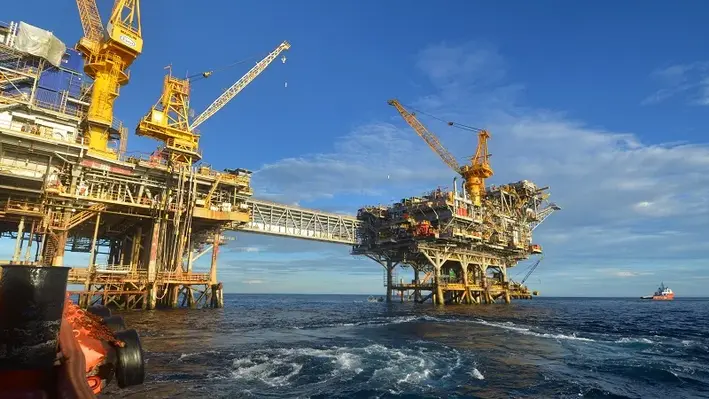

The global well intervention market is projected to grow significantly over the next decade, as operators prioritise optimising output from existing oil and gas wells.
These services, which include everything from maintenance and repairs to production enhancement, play a vital role in extending the operational life of both onshore and offshore wells while reducing downtime.
Well intervention activities generally fall into two categories: light well intervention (LWI) and heavy well intervention (HWI). LWI includes smaller, cost-efficient operations such as wellbore cleaning and monitoring. HWI covers more complex work such as hydraulic workovers and large-scale repairs, often requiring advanced tools and specialised equipment.
This demand is largely being driven by a combination of factors. Global energy consumption continues to rise, encouraging more efficient use of existing resources. Many oil fields are reaching maturity, requiring targeted intervention services to extract remaining reserves. At the same time, technological advances—particularly in digitalisation, robotics, and remote monitoring—are making well interventions more effective and cost-efficient.
According to SkyQuest Technology, the market was valued at US$9.6bn in 2024 and is expected to reach US$14.73bn by 2032, growing at a compound annual growth rate (CAGR) of 5.5%. Enhanced oil recovery (EOR) techniques and the integration of new technologies will remain key drivers in this expansion.
Regionally, North America dominates the market, led by the United States and Canada, due to a high number of mature fields and strong investment in unconventional oil and gas. Europe is seeing increased activity in the North Sea, while the Middle East and Africa continue to invest in aging infrastructure. Asia-Pacific is emerging as a growth hotspot, with countries like China and India increasing exploration and production efforts.
Several trends are shaping the market. The push into deepwater and offshore fields is generating demand for sophisticated intervention services. Automation and robotics are reducing reliance on manual labour and improving precision. EOR strategies are gaining ground, especially in mature fields. And growing environmental scrutiny is encouraging operators to seek cleaner and more sustainable methods of intervention.
The sector remains highly competitive. Global players like Schlumberger, Halliburton, Weatherford, Baker Hughes, and NOV lead the market, offering advanced services tailored to both complex offshore operations and routine onshore interventions. However, high operational costs, regulatory pressures, and geopolitical risks remain persistent challenges.
Despite these headwinds, the long-term outlook for the well intervention market is positive. As more companies look to extend the life of their assets and operate more sustainably, well intervention services will become an increasingly essential component of global oil and gas strategies.
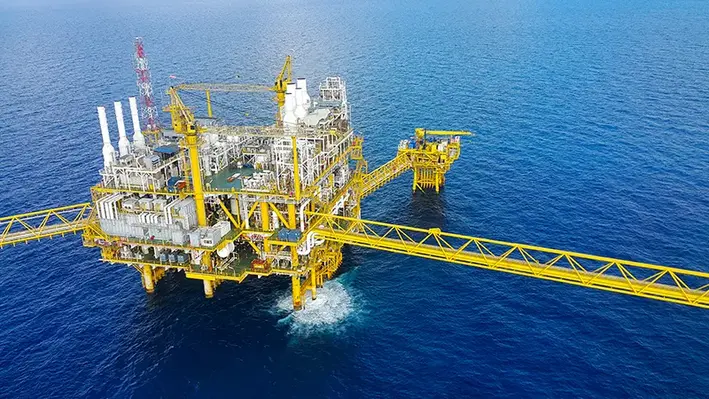
 Petrofac’s Asset Solutions division has secured a series of new contracts and scope expansions in the first quarter of 2025, amounting to US$500mn.
Petrofac’s Asset Solutions division has secured a series of new contracts and scope expansions in the first quarter of 2025, amounting to US$500mn.
These awards reflect the company’s growing presence in key markets and emerging geographies, spanning late-life asset management, decommissioning, and integrated services.
The contracts, awarded across the UK, Europe, the Middle East, Africa, Asia Pacific, and the US, bolster Petrofac’s footprint in established sectors while driving expansion into targeted regions. This significant momentum builds on a strong performance in 2024, reinforcing the company’s strategic vision.
Chief Operating Officer John Pearson commented on the achievement, stating, “Following a strong year for awards in 2024, our Asset Solutions business has had a great start to 2025 with half a billion dollars’ worth of scopes and contract expansions secured already, and a strong pipeline of opportunities across a range of geographies during the remainder of the year.”
Highlighting Petrofac’s expertise, Pearson added, “These awards, with a range of clients, demonstrate the strength in our mature asset management and decommissioning offering, and form part of our strategy to expand our services into selected new geographies. We look forward to continuing this trajectory throughout the remainder of 2025 and beyond.”
This announcement follows Petrofac’s Emirates subsidiary securing an engineering, procurement, and construction (EPC) contract with ADNOC Gas in January 2025. Valued at US$335mn, the deal covers new compression facilities for the Habshan Complex, reinforcing Petrofac’s role in critical infrastructure projects.
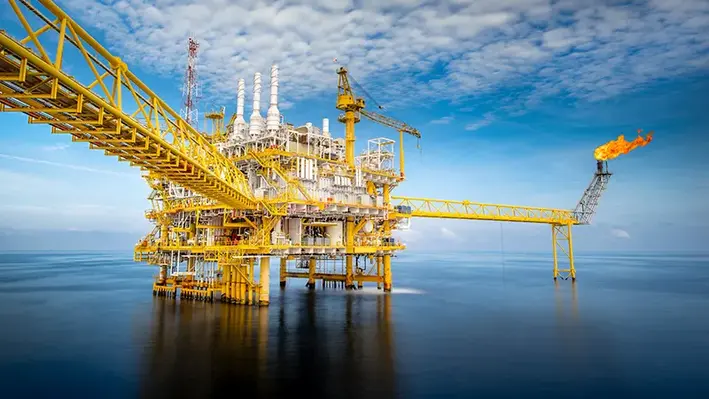
 Archer has announced that Equinor has awarded the company the planning work for the permanent plug and abandonment (P&A) of the Snorre UPA and Heidrun B&C templates.
Archer has announced that Equinor has awarded the company the planning work for the permanent plug and abandonment (P&A) of the Snorre UPA and Heidrun B&C templates.
With an extensive portfolio of P&A solutions, including a well engineering joint venture with Elemental Energies, Archer is uniquely positioned to provide end-to-end services covering planning, well engineering, and permanent well abandonment execution. This award underscores Archer's ongoing commitment to delivering cost-effective, high-quality services across the entire P&A value chain.
Commenting on the announcement, Dag Skindlo, CEO of Archer, stated, "We are honoured to have been selected by Equinor for this significant subsea P&A project. This contract reflects our team's deep expertise and dedication to subsea well P&A planning. We look forward to collaborating closely with Equinor to ensure the successful execution of this project as we strongly believe in a model where we combine well barrier design with well service specialist and new solutions. This will drive down the cost for operators."
The contract further strengthens Archer's position as a leader in the P&A market, both in Norway and globally, allowing the company to demonstrate its comprehensive expertise—from concept selection to the delivery of permanently plugged and abandoned wells.
Page 7 of 36
Copyright © 2026 Offshore Network